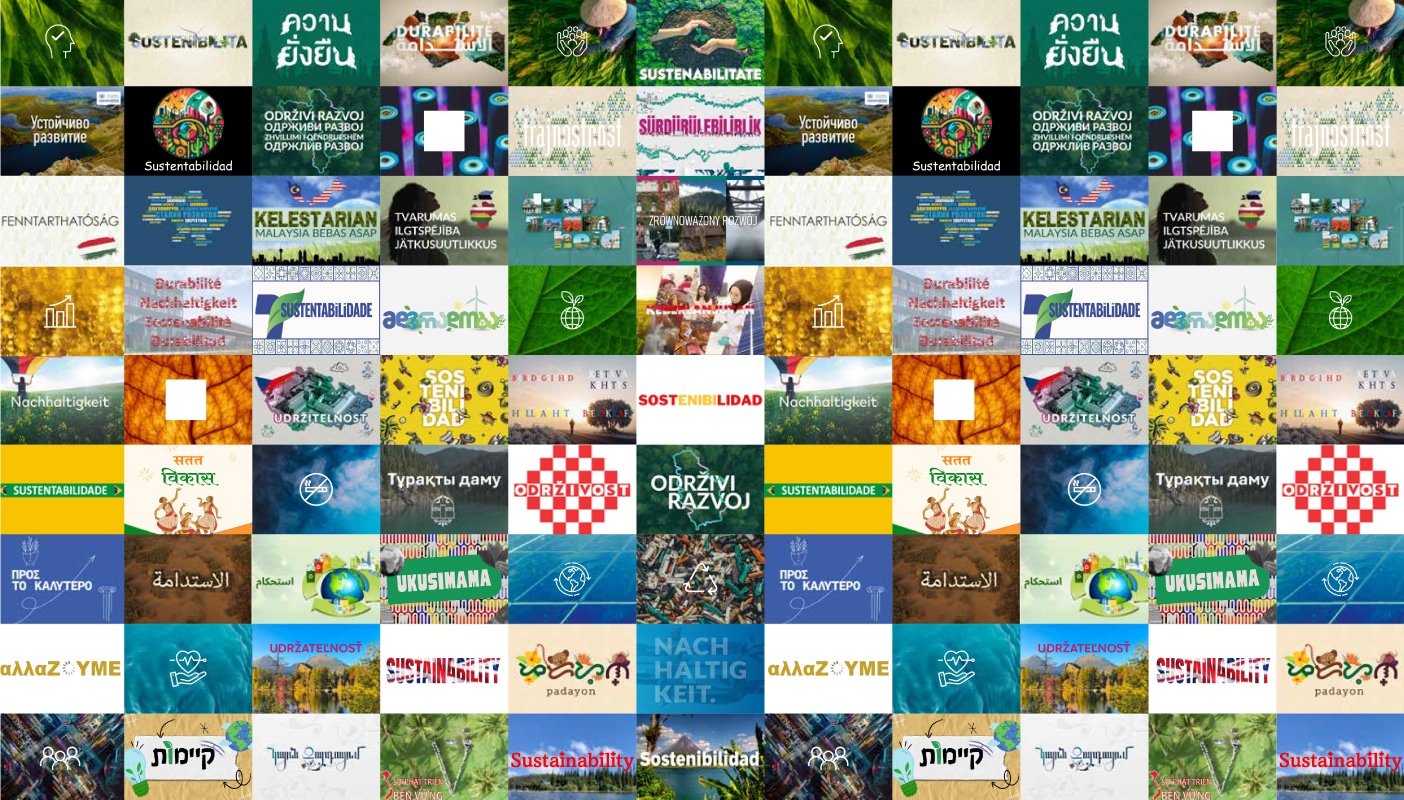Our fifth Integrated Report reveals PMI’s continued expansion of smoke-free alternatives in markets worldwide, alongside the social and environmental programs deployed with and in parallel to these products.
Further, we report the advances we’re making toward fostering an empowered and inclusive workplace, improving the quality of life of people in our supply chain, decarbonizing our operations and value chain, and preserving nature and biodiversity.
Our people driving progress
PMI’s Chief Executive Officer, Jacek Olczak, paid tribute to the company’s approximately 82,700 employees—the core drivers of our ongoing progress.“2023 was a year marked by unity, determination, and a continued commitment to our vision of a smoke-free future,” he said.
“As we encounter new challenges, our people’s enduring resilience, exceptional talent, and depth of purpose ensure we are well-equipped to continue our journey—pursuing progress, embracing innovation, and fostering sustainability—as we transform for good.”
PMI’s approach to sustainability is guided by the outcomes of our 2021 sustainability materiality assessment, which, following the principles of double materiality, identified the topics on which PMI focuses and prioritizes resources.
Our sustainability strategy addresses two distinct forms of topics—those related to our products (what the company produces), which are part of the “Product Impact” pillar, and those related to our business operations (how the company produces), which are part of the “Operational Impact” pillar.
Product Impact highlights (social)
- Approximately 33 million estimated number of users of PMI’s smoke-free products, including 28.6 million users of our flagship heated tobacco product, IQOS (compared to 24.9 million IQOS users in 2022)1
- 36.4 percent of adjusted net revenues derived from smoke-free products (compared to 32.1 percent in 2022)2
- 84 markets where PMI smoke-free products are available for sale3, of which
47 percent are low- and middle-income markets4 (compared to 73 markets and 42 percent low- and middle-income markets in 2022, respectively) - 25 markets where smoke-free products represented more than 50 percent of annual net revenues (compared to 17 percent in 2022)
- USD 12.5 billion cumulative investment behind smoke-free products since 20085 (compared to USD 10.7 billion in 2022)
- 98 percent of total shipment volume covered by youth access prevention programs in indirect retail channels (compared to 91 percent in 2022)6
Product Impact highlights (environmental)
- 320,000 cumulative smoke-free electronic devices refreshed or repaired since 2021 (compared to 157,000 in 2022)7
- 76 percent of shipment volume covered by markets with anti-littering programs in place for combustible cigarettes (compared to 68 percent in 2022)
- 17.6 percent of shipment volume covered by markets with smoke-free consumables take-back programs (compared to 8.5 percent in 2022)
Operational Impact highlights (social)
- 41.8 percent of management positions held by women, continuing to exceed our aspiration of 40 percent (compared to 40.7 percent in 2022)
- Eight human rights impact assessments conducted since 2018 in highest-risk countries (compared to seven in 2022)
- 0.1 percent prevalence of child labor among contracted farmers supplying tobacco to PMI (compared to 0.1 percent in 2022)
Operational Impact highlights (environmental)
- 18 factories and 11 markets have been declared carbon neutral to date (compared to 13 factories and one market in 2022)
- 94 percent proportion of tobacco purchased at no risk of net deforestation of managed natural forest and no conversion of natural ecosystems (compared to 55 percent in 2022)
- 8.14 million cubic meters of water optimized in our tobacco-growing areas (cumulative since 2019) (compared to 4.94 million cubic meters in 2022)
Sustainability: The bedrock of PMI’s strategy
“Strategic foresight unites our nonfinancial aspirations with financial outcomes,” explained Emmanuel Babeau, PMI’s Chief Financial Officer.
“This is consistent with our purpose, which increasingly resonates with our stakeholders, and we believe powerfully demonstrates the interplay between societal impact and the generation of long-term shareholder returns.
“Delivering a smoke-free future and excelling in our sustainability aspirations are not just ethically sound decisions, they are the bedrock of our strategy and the key to our shared success.”
Recognition for our sustainability performance
In 2023, PMI’s sustainability performance was recognized by ESG ratings providers and sustainability-related organizations including:
- Achievement of CDP's Triple-A” rating for the fourth consecutive year—placing PMI among the world’s leading companies in environmental transparency and action.
- Inclusion in CDP's Supplier Engagement Leader Board for the seventh year for the company’s leadership in supplier engagement.
- Inclusion in Dow Jones Sustainability World Index for the first time, and the Dow Jones Sustainability North America Composite Index for the fourth consecutive year (Index inclusion effective as of Dec. 18, 2023), in addition to being awarded “Prime” status in the ISS ESG Corporate Rating (ISS ESG Rating as of November 21, 2023).
- Validation from the Science Based Targets initiative (SBTi) on its Forest, Land, and Agriculture (FLAG) emissions reductions targets, making PMI one of very few companies so far to achieve this recognition.
- Named an Early Adopters for having committed to advancing the adoption of the Taskforce on Nature-related Financial Disclosures (TNFD) recommendations.
“As we present this Integrated Report 2023, we emphasize that delivering a smoke-free future is not just a priority, it is the essence of our purpose,” said Jennifer Motles, Chief Sustainability Officer at PMI.
“The
path we tread is marked by our ambition to lead, our vow to operate transparently, and our dedication to ensuring that cigarettes are relegated to history.
“We remain committed to transparent, consistent, and reliable reporting
practices that allow external stakeholders to understand not only our performance, but also how we are responding to a rapidly changing environment and planning for the long term, fostering a more sustainable and transparent business landscape.”
How we created our Integrated Report
The preparation of PMI’s Integrated Report 2023 considered guidance of international standards and frameworks, including the Global Reporting Initiative (GRI), the UN Global Compact (UNGC), the UN
Sustainable Development Goals, the IFRS Foundation—including use of its SASB Standards, Integrated Thinking Principles, and Integrated Reporting Framework.
It aims to provide an objective description of PMI’s business model,
strategy, performance, and prospects in relation to our priority economic, environmental, social, and governance topics.
It describes PMI’s progress in delivering on our purpose, as articulated in our Statement of Purpose, to completely replace cigarettes as soon as possible with smoke-free products that are scientifically substantiated to be less harmful than smoking, while in the longer run laying the foundation of a strong business
in the areas of broader lifestyle, consumer wellness, and healthcare.
You can read PMI’s Integrated Report 2023 or find out more about sustainability at PMI.
1 Figures are based on IQOS user panels and PMI market research. Estimated user numbers for oral nicotine and e-vapor are approximate, with further methodology details to be provided in future disclosures. See Glossary available on pages 208-212
of PMI Integrated Report 2023.
2 For definition of net revenues related to smoke-free products, see Glossary available on pages 208-212 of PMI Integrated Report 2023. Data excludes the impact related to termination of distribution
arrangement in the Middle East in 2023.
3 For definition of available for sale, see Glossary available on pages 208-212 of PMI Integrated Report 2023.
4 Excluding PMI Duty Free. World Bank report issued in 2023 is used on a comparative basis for
income level classification. For definition of low- and middle-income markets, see Glossary available on pages 208-212 of PMI Integrated Report 2023.
5 Investments reflect research, product and commercial development, production
capacity, scientific substantiation, and studies on adult smoker understanding. Figures do not include Swedish Match and Vectura Fertin Pharma.
6 Total shipment volume includes cigarettes, other tobacco products (OTPs), and
smoke-free product consumables. See PMI’s Sustainability KPI Protocol 2023 for further details. Data excludes Swedish Match and Vectura Fertin Pharma.
7 See PMI’s Sustainability KPI Protocol 2023 for further details.



